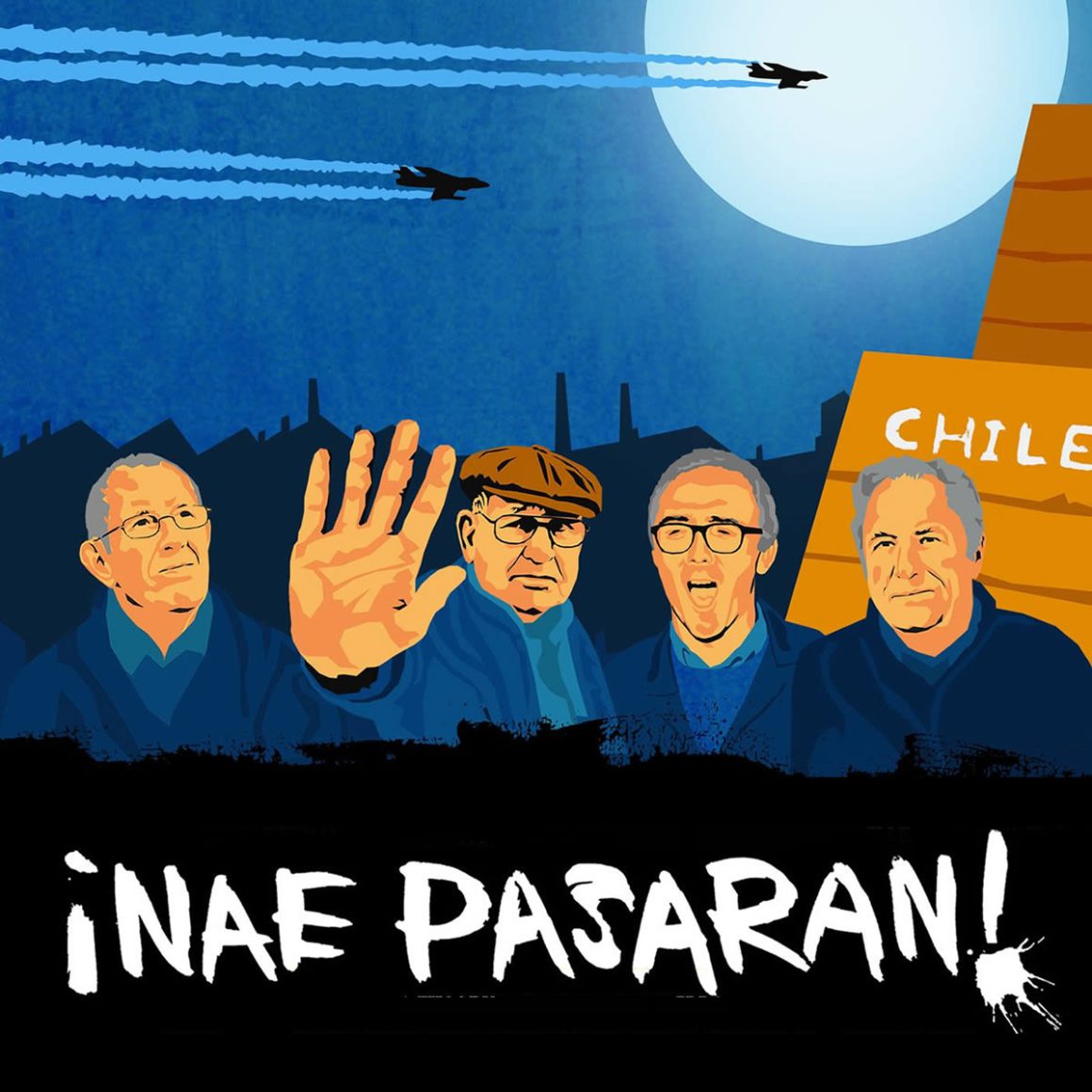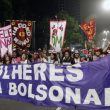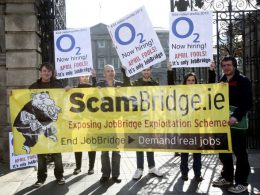Nae Pasaran
Directed by Felipe Bustos Sierra
Debasers Filums, 2018
Reviewed by Neil Moore
On the 45th anniversary of the brutal military coup in Chile, a new documentary tells the story of a group of Scottish factory workers and their incredible act of solidarity with the Chilean people.
On 11 September 1973, a military coup backed by the CIA was launched against Salvador Allende’s left-wing government – elected three years prior on an extensive programme of radical social reform. Workers gathered in their factories to defend these gains but were pacified by their leadership as fighter jets flew frighteningly low across Santiago, the Chilean capital – eventually bombing the presidential palace. A vicious military junta led by General Augusto Pinochet seized power.
Once in power, Pinochet’s military unleashed a bloody era of repression and slaughter – cruel and clinical in targeting the most politically conscious. Trade unionists, local workers’ leaders and youth were brutally rounded up in stadia, town squares and concentration camps, as thousands were murdered or disappeared. This effectively beheaded Pinochet’s main opposition within Chile – the workers’ movement.
It paved the way for a sick experiment which not only had a devastating effect on the Chilean working class but impacted internationally as well. Chile became the sandbox for the “Chicago boys”, the ideologues of neo-liberalism based in the University of Chicago, led by Milton Friedman. The Chilean regime refined neo-liberal policies for the likes of Thatcher and Reagan to unleash upon their own working classes.
Nae Pasaran begins with the same images of the brutal overthrow of Allende’s government that were beamed across the world in 1973. These images brought condemnation internationally within the labour movement. But for a group of union shop stewards in a Rolls Royce plant in East Kilbride, they particularly resonated. Those low-flying jets bombing the presidential palace were in fact ex-RAF Hawker Hunter jets – the mainstay of Chile’s air force. The East Kilbride factory was, by that time, the only one in the world that serviced the engines of these jets.
When a consignment of Chilean engines arrived at the plant a year later to be repaired, Bob Fulton, an engine inspector, refused to allow the engine through – citing his union’s opposition to Pinochet’s regime. When a factory inspector overruled Fulton and let the consignment of engines go through, the local union committee formalised an official boycott within hours.
For the next four years, all 3,000 workers at the factory would refuse to touch any “blacked” equipment associated with the Chilean dictatorship – leaving the engines to rust at the hands of the Scottish weather. Four years later, the engines disappeared in the middle of the night – with strong evidence the British military was involved – leaving the workers in the dark about what happened to them for decades. They eventually began to believe that their actions had been meaningless.
Their stand was widely celebrated by the Chilean solidarity movement at the time, however, and captured the imagination of Nae Pasaran’s director, Felipe Bustos Sierra. He was the son of Chilean exiles in Belgium and remembers the stories amongst his family and the wider solidarity movement of these Scottish workers grounding the jets, which were a strong icon of the coup years earlier.
The film itself is a stroke of genius, pulling together the stories of three of the men key to the boycott in what becomes a heart-warming and inspiring story of solidarity, with the detail of the boycott intertwined with archive footage and interviews. The film delves into the impact of the “blacking,” and depicts the often emotional reactions of not only the shop stewards in Scotland but those in Chile interviewed as well.
One of those who gave a clear insight into this act of solidarity and its impact is General Fernando Rojas Vender, a former Commander in Chief of the Chilean Air Force and a Hunter Hawker pilot who was involved in the assault on the Moneda Palace during the coup. He reveals that as a result of the boycott the Chilean Air Force, for a period, had no jets in service.
Today the story of these workers and their stand reads like the plot of a fictional quirky comedy – a group of Scottish workers take on a dictatorship. This was a time when unions wielded great power and most sectors were well organised. This wasn’t just a small group but an entire factory of 3,000 workers. It demonstrates the importance of rebuilding a fighting trade union movement that can not only represent the class interests of the workers it represents at home but also can lend genuine international solidarity.
It is clear that a fighting, well-organised and politically engaged union movement could once again lead effective campaigns blacking goods at their source of production – a far more effective tactic than the often tokenistic broad stroke boycotts aimed at a minority of consumers.











